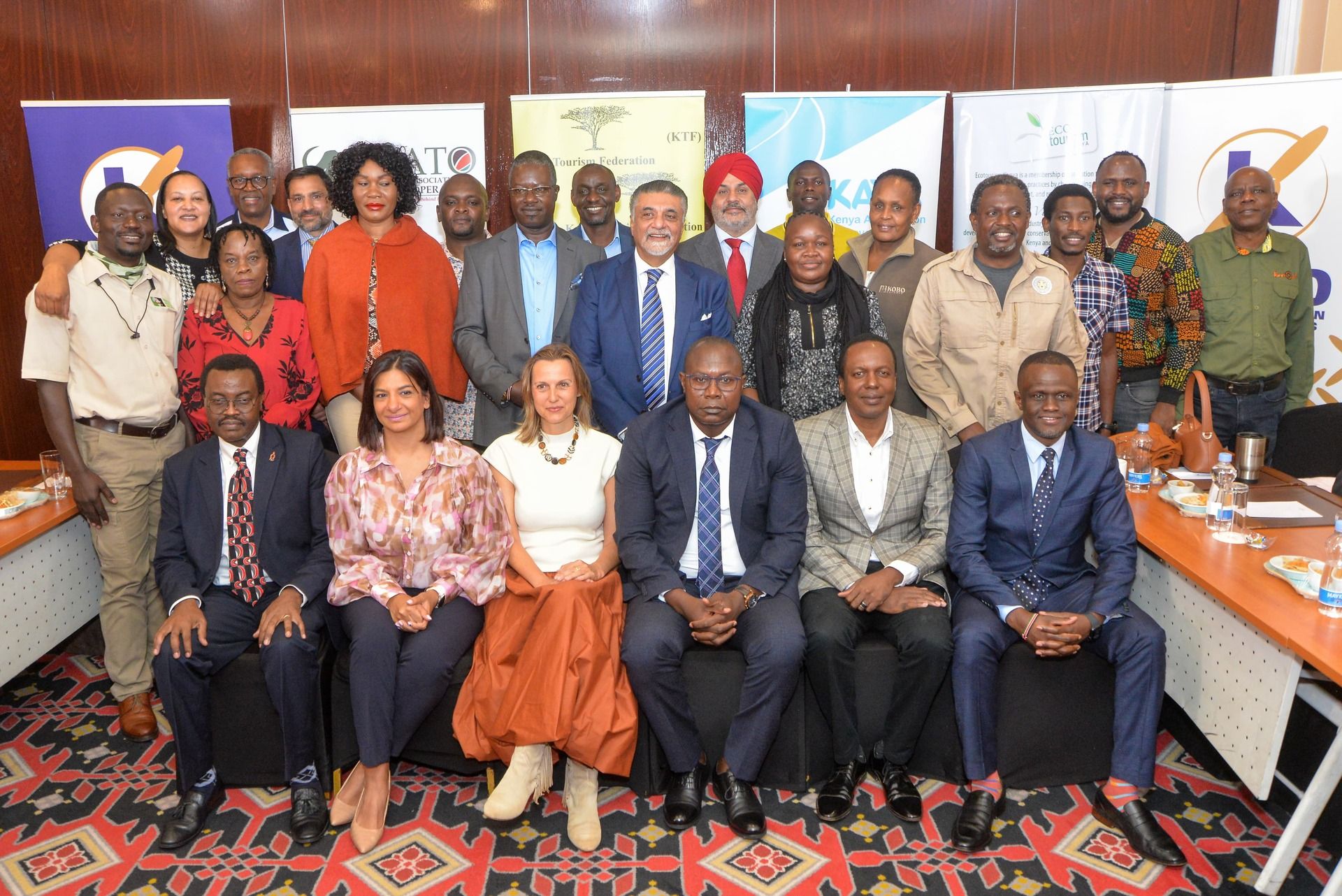- The 254 Report
- Posts
- Tourism Sector Warns: Last-Minute KWS Fees Destroying Ability to Plan and Price for 2026-2027
Tourism Sector Warns: Last-Minute KWS Fees Destroying Ability to Plan and Price for 2026-2027

The Kenya tourism industry held an urgent press conference at Sarova Stanley Hotel to warn that Kenya Wildlife Service's sudden implementation of new park payment system charges is making it impossible for tour operators to honor existing client commitments and maintain confidence in Kenya as a business destination.
Tour operators and travel agents who have spent years building Kenya's reputation now face an operational crisis: clients locked into 2026 and 2027 bookings are confronted with unexpected cost increases that force operators to choose between absorbing losses or losing business entirely.
The $7,000 Shock
Shazmin Manji, CEO of Twiga Tours, presented concrete evidence of the financial damage:
We have an arrival coming in this week of an incentive, a corporate group visiting two KWS parks with Amboseli and Nairobi National Park. The increase in the park fees combined with the 5 percent transaction fee, in fact it's 8.5 because you're forced to pay by credit card with such large volumes. There's a 3.5 percent credit card transaction fee plus a 5 percent gain to the fee. It is an extra over $7,000 for this specific client.
The Pricing Impossible Situation
Shazmin Manji explained why last-minute fees destroy the tour operator business model:
As we operate, we have already priced 2026 to our source markets at the beginning of 2025, and at this time we are pricing and selling 2027. So when you put in fees like this at the last minute, consumers in our source market have budgeted and new deposits for their trips. They then have the option to seek alternative safari destinations, which they feel may be more competitively priced.
Kenya is now perceived as an expensive destination precisely at the moment when international clients are locking in their 2026 and 2027 travel plans. Shazmin Manji emphasized that the timing destroys Kenya's competitive positioning.
Why the Industry Went Public
Moharjeet Brar, KATO Board Member, articulated the breaking point:
We are not an industry that's always making press conferences. When we come out to the media like this, you understand that there's a serious problem. We have tried the quiet channels. We have engaged government through proper procedures. But nothing has changed. So here we are, in public, asking for help.
The industry's frustration is rooted in exhausted channels. Moharjeet Brar explained that operators have attempted every quiet approach available.
What Government Must Do
Moharjeet Brar made clear what industry requires from government:
We need administrative notice and that's within the law. If you work for these agencies, the law requires you to consult. The law requires notice. That's what we're asking. The government provides an enabling environment, that's its job. Our job is to bring the tourists.
The legal requirement for consultation is not negotiable. Moharjeet Brar emphasized that this is a matter of rule of law, not special pleading.
Aviation Sector Collapse
Alex Avedi from Kenya Association of Air Operators described the cascading impact on aviation:
When we book demand say like 10,000 people flying through our services next year, we make aircraft commitments. When you buy an aircraft, it's a commitment for better or for worse. It's like a marriage. We've seen a significant drop in air traffic to our parks. Whatever we have is not exclusive to Kenya. People have options.
Airlines have locked in capital commitments based on projected passenger numbers. The sudden fee increases are now destroying those projections.
The Regional Advantage
Fred Odek, KTF Chairman, outlined why competing destinations are now winning Kenya's business:
Our product is not basically exclusive to us. What we sell is not exclusive to Kenya. Tanzania has the same. Uganda has the same. Rwanda has the same. Namibia has the same. Zambia has the same. So if you make it difficult even just to pay taxes, you understand the rational choice. Somebody is here and cannot make a payment because of barriers, and they say: 'Next time I go to Uganda.'
Governance Failures
Operators raised serious questions about how the system was implemented without consultation:
We have many questions about this charge. Public participation was done where were we called to approve of this person who is now charging us 5 percent to process payments? What procurement processes was that? So many questions for KWS. We cannot do things like this. Kenya is a country where the rule of law and processes need to be followed.
The Cumulative Toll
The financial impact across the industry is staggering:
The file I mentioned in my briefing is not two entries it is a whole 400. Now if we go to the new rates that they put in for 2026, we're talking about a billion in cumulative impact.
Expedition Kenya Safari Reality Check
Patrick Gitau from Expedition Kenya Safari assessed the fundamental sustainability of Kenya as a tourism destination:
Selling Kenya is not going to be sustainable at all. So now you're forced to sell other destinations which are better options for your clients and this is how it's becoming.
Operators are not theorizing. They are shifting their business. Patrick Gitau from Expedition Kenya Safari described the immediate pivot:
Maybe if you're doing safaris you focus on right now Tanzania is hot despite what's going on I mean after as soon as they get their ducks in a row they're still good to go.
The assessment from Expedition Kenya Safari is unambiguous. Patrick Gitau concluded:
We are at a point whereby we are at the tipping point of Kenya not being a sustainable tourist destination, business wise.
Reply